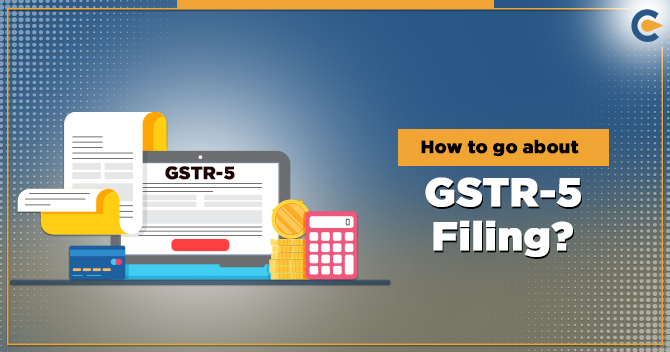Do you think a trustee can take salary or compensation as monthly or installed remuneration from the Trust? It stands as the most common question inquired by people all over the globe who wants to set up a charitable trust. At the outset, it is essential to know that running a trust is not a stress-free work.
It requires a trustee to invest a substantial amount of time and energy into the Trust and maintenance. However, most consultants from the lawyers and CA’s fraternity would clearly articulate that it is not allowed for a trustee benefits. However, it depends on what institutes the term ‘benefit’ in the context. Firstly, you must know what trusts are and the two types: Private and Public charitable trusts.
What is the General Argument seeking Compensation for Trustees? –Basic Short Submissions
- We are progressively moving towards professionalization and corporatism of the voluntary sector. One primary justification put forth by new-age corporate professionals is that one should compensate for attracting the right candidates on the board who can then impact the non-profit’s performance.
- She/he must ensure that Donors or the Grant-makers get a better return on their Charitable or philanthropic investment/work. Nevertheless, these corporate professionals forget that there are significant differences between the responsibilities of non-profit and for-profit organizations.
- For-profits orientations in trade, commerce, and business runs to earn financial returns for their shareholders. Non-profits organizations operate to achieve their charitable mission without the motivation of financial gain. Non-profit organizations do not have shareholders. Instead, non-profits owe commitment to donors, grant-makers, beneficiaries, and the general public, which perceives non-profits motivated by volunteerism.
- The Governing Board of a non-profit organization has a fundamental legal responsibility to carry due diligence and perform his/her duty as a person of sensible approach with full accountability and transparency.
- In reference to the board’s “fiduciary” responsibility, the board must ensure that the organization is duly stewarding the resources entrusted to it and understanding all legal and ethical standards.
- Meanwhile, if a member of the governing board of a tax-exempt charity gets remuneration or compensation for services, he/she becomes exposed to allegations of conflict of interest and greater investigation by regulating authorities. An apparent dispute of interest occurs when a board member’s duty of loyalty to the non-profit comes into conflict with a competing personal or financial benefit.
- Superlatively, the committee of the governing board of a non-profit/charity should not get compensated or rewarded for services provided. However, the CEO or Executive Director, who is not a member of the Governing Board, may be well paid. It assures that the board plays it’s “governance role” with full sovereignty, and the CEO/ Executive Director plays his/her “management role” with the required check and balance system.
- The State law (which rules your non-profit incorporation) and the Internal Revenue System (which controls your tax-exempt status) allow paying reasonable salaries to officers, employees, or agents for services rendered to promote the non-profit, tax-exempt purposes.
- One can say that Non-profit organizations have founders, not owners. The authors/founders of a non-profit cannot profit or advantage from the ‘net earnings’ of the organization. They can create money in several supplementary ways; still, it includes receiving compensation from the non-profit activities.
What could define as a ‘Service’ to draw a Reasonable Compensation for Trustee?
- Most in the present times, people think that the Indian Trusts Act 1882 applies to Public Charitable trusts, but that is incorrect. The Public charitable trusts are administered by the Bombay Public Trusts Act 1950 in few states also.
- In cooperation with the ‘Bombay Public Trusts Act 1950’and ‘Section 13 of Income Tax Act[1]’, it says that the trustees can draw a “reasonable” remuneration/salary from the trust fund for the ‘Services’ they deliver to the Trust.
- In the meanwhile, it is essential to note that – being a trustee itself is not reflected as a service. It would be best if you understood what could be defined as a service to draw a Reasonable Compensation/salary for trustee.


- Position under Law: -The term “Reasonable” depicts the means for salary that must not be greater/higher than the usual average market rate. If in case the trustees are taking unreasonable benefits from the Trust Fund, then the Income Tax Department may‘reject or revoke’ the portion of tax exemptions under section 12A and 80G.
- Example: – Assuming the hypothetical facts, in a charitable trust, one of the trustees is an experienced/practiced Chartered Accountant who is managing the Trust’s accounts solely. In such a case, he is qualified for a ‘reasonable salary/compensation’ for his ‘professional work’ because his work is saving the Trust from paying another CA’s fee.
- Case law:-According to the case, ‘PNR Society for Relief & Rehabilitation of the Disabled Trust Vs. DDIT (ITAT Ahmedabad), ITA No.2729/Ahd/2010’, you may apply the present concern, which supports the legal position. It says that the trustee can get a salary from the trust fund, and the same gets employed as expenditure incurred concerning exempt income in trust accounts.
Does the Instruments of Trust determine the eligibility to Remuneration of Trustee?
- It is essential to ascertain whether the organization’s agreement allows members of the governing board to be salaried or not. If yes, then, up to what extent? The instrument of the trust may include:
- The Trust Deed in case of the trust, or
- The Memorandum of Association & Rules in the case of a society, or
- Memorandum of Association & Articles in the case of a Section 8 company
- It must be noted that the founder of a trust may also be its trustee. According to the Indian Trusts Act, a trustee has no right to get a salary unless a provision for such salary has laid down in the instrument (Deed) of the trust.
- As a consequence, if the founder of a private trust desires to earn money over and done with a trust as its trustee, then the founder must lay down express provisions for the same in the Deed itself.
- Furthermore, Section 36A (4) of the Bombay Trusts Act prohibits trustees of Public trusts from borrowing cash for their use from the possessions/assets of the trust.
- Likewise, Section 41D (1) (d) of the Bombay Trusts Act authorizes the ‘Charity Commissioner’ to Suo Moto suspend, eliminate or dismiss a trustee of a public trust on the ground of misuse of or unsuitably dealing with the property/funds of the trust.
What are the ways the remunerations of trustee can be authorized?


Remuneration expressly authorized by the trust instrument.
- The standard method of obtaining remuneration is through the inclusion of a ‘remuneration clause’ in the trust deed, which constitutes an authorization by the settlor for compensation.
- Such clause is regarded not as a contractual benefit, but as an aspect of the settlor’s “reward.”
Remuneration authorized by the court.
- Generally, a trustee in India is not entitled to compensation for his time and trouble in execution of the trust. But there is an inherent ‘equitable jurisdiction’ to allow a trustee remuneration, which is usually exercised cautiously and in exceptional cases. Few instances are:-
- When the beneficiaries are ‘sui juris’ (having full legal rights or capacity), they have impliedly or expressly promised to pay for the services.
- It is essential to get a trustee whose services are of exceptional value to the trustee if it is necessary to obtain a particular kind of trustee’s services.
Remuneration authorized by the Statute.
- Under the law of the Trustee Act, remuneration authorized by Statute, and the court may allow such compensation for the trustee services as the court think it is fit.
- A trustee may reimburse himself or discharge all the trustee premises expenses incurred in or about the execution of the trusts or power”.
- The power to authorize remuneration will occur when “The court allows any trustee, other than the Public Trustee, such remuneration for his services as trustee as the court may think fit.”
Read our article: Accounting and Tax Treatment of Inter-NGO (Trust/Society/Company) donation
What does Income Tax Appellate Tribunal says on the Insufficiency of proof salary paid to the trustee? –Recent Case-Law Reasoning
Position of Case Law: –
- In the case, “Adhikar, Plot No.113/2524, Vs. Income Tax Officer, Ward-KhandagiriVihar, 2(1), Bhubaneswar,” it has held that; the salary paid to the trustees by a Trust cannot be considered as ‘excessive‘ unless there is sufficient factual evidence to prove the same. Moreover, the Income Tax Appellate Tribunal (ITAT) of Cuttack bench says that the assessee, in this case, is a charitable trust registered U/s 12A of the Income Tax Act.
Factual Statements:-
- Observing the assessment year 2010-2011 from the Book of Account of the trust, the Assessing Officer detected that a total amount of Rs.1,52,00,000/- was receivable from M/s. Adhikhar Micro Finance (P) Ltd. on 1.4.2009. Additionally, during the year, a sum of Rs.50,00,000/- was invested by the assessee society as interest-free provisional loan on dated 29.9.2009.
- Incidentally, it was come to know that Mr. N. Amin is the President of the society, and ShriManmath Kumar Bhanjdeo is the trustee. Mutually, they both had invested and had an interest in the company Adhikar Micro Finance Pvt Ltd. For that reason, it held that they had violated the provisions of section 13(1) (c) of the Act.
Interpretation of Provision:-
- The Tribunal distinguished the arguments that, to attract the provisions of section 13(1)(d) of the Income Tax Act, it is not sufficient to only establish that remuneration has paid to trustees.
- Then again, it should also present that the compensation paid is ‘excessive ‘or ‘unreasonable,’ which were associate with the services rendered by those trustees.
- After due considerations and fair trails, ITAT has rejected the department’s view. The Tribunal believed that no material had been brought on Book of record before them by the department. They were unable to show the provisions referred to in section 13(1)(c) of the Act have violated by the trustee, and had substantial interest either singly or jointly in the Adhikar Micro Finance or Grameen Products Pvt Ltd.
Important Case Cited & Relied Upon the Parties:-
- C.I.T. vs. Kamla Town Trust, 279 ITR 089 (All):- Held similar as above.
- Allahabad High Court in C.I.T. v. Lucknow Diocesan Trust Association: – The learned Judges held that there was no restriction placed regarding payment to the trustees for managing the affairs of the assessee trust. Any payment of management charges to trustees got believed to be a permissible deduction from the revenue of the trust. It considered as relying under section 11 of the Act.
- C.I.T. v. Birla Janahit Trust: – In this case, the court held that expenditure on salary and miscellaneous expenses for carrying out purposes of trust must get considered as application of income for charitable purposes.
What do you mean by Due Diligence considering Reasonable Compensations for Trustees?
- It is commonly known that Income-tax Department requires reasonable compensational packages for non-profit administrators. Reasonable compensation is understood by way of articulating all the factors of Internal Revenue Service.
- It duly examines while taking into considerations whether or not a charity is out of reasonableness concerning compensation measures. It’s extremely important to note that each factor is subjected differently depending on the state of affairs. Moreover, there are relevant fractions which attracts criterion; those are as follows-


- Due diligence is the analysis or investigation of care that a reasonable person or work is expected to take before arriving into a promise. It may enable the person or contract with another party to act with a certain standard of carefulness. Therefore, it can say that Due diligence is the parallel assistant of Reasonable Compensation.
- For the successful deliberations of making orders to have a compensation package measured truly reasonable, the figure must go through substantive evaluation by board of directors.


Conclusion
Being a trustee can include a lot of effort. It depends on the nature of trust, whether living trust or long-term trust. There may be on-going responsibility, so compensation usually is part of the deal. If such payments are of perpetual by nature, then make a notice of it in Trust Deed by way of amendment, under implication/notice to Authorities. For more information, you should communicate to the Commissioner of Income Tax (Exemptions), which jurisdiction over your area covers. We hope that this blog has clarified whether a trust can take salary, compensation, or remuneration from the Trust Fund or not.
Yet, we understand that legal arenas are quite refining these lines of attacks; therefore, it is beneficial to examine and take legal advice on issues to get the in-depth idea based as per the latest circulars and legal Illustrations. We at Corpbiz, have professionals equipped with legal expertise to hold your Trust funds as well as Compensational issues as per your business targets.
Read our article:Investment by Trust & Compliance U/s 11(5)











